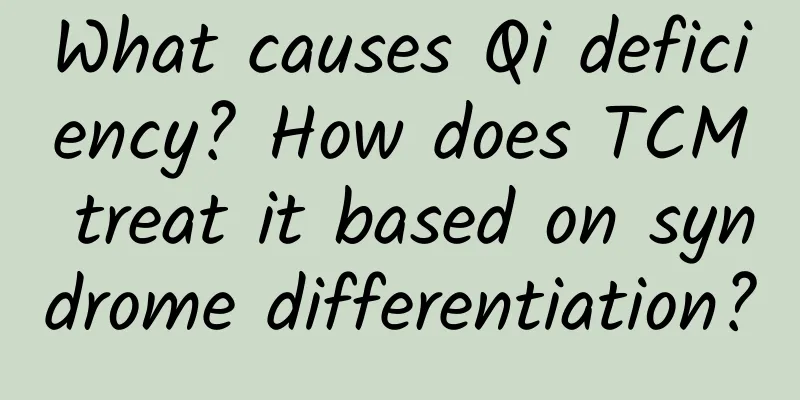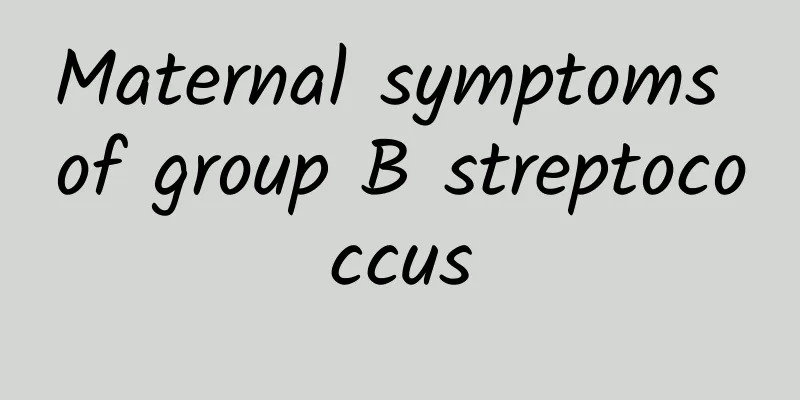What causes Qi deficiency? How does TCM treat it based on syndrome differentiation?

|
The occurrence of qi deficiency usually has certain inducements, and if people want to effectively regulate it in daily life, they also need to find out the causes of qi deficiency. So, what causes Qi deficiency? What causes Qi deficiency? Qi deficiency is mostly caused by congenital deficiency, or malnutrition, or depletion due to overwork, or long-term illness, or decreased function of organs such as the lungs, spleen, and kidneys, and insufficient Qi production. Comparing the causes, symptoms and pulse of modern medicine, Qi deficiency is very similar to the modern medical concept of "sub-health". The root cause of sub-health is insufficient yin and yang, qi and blood, and poor function of the five internal organs, which is also consistent with insufficient vital energy and qi deficiency. Qi deficiency diseases involve the five internal organs. Qi is the most basic substance that constitutes the human body and maintains human life activities, and belongs to the category of human essence. The human body's essence and energy are stored in the five internal organs respectively, so "Suwen·Discussion on the Five Internal Organs" says: "The so-called five internal organs are where the essence and energy are stored and not discharged." Therefore, from the source of Qi, the Qi that constitutes the human body and maintains human life activities mainly includes two aspects: innate essence and acquired essence. From the perspective of the relationship between the generation of qi and the internal organs, all five internal organs store essence and qi, with the lungs, spleen, and kidneys being particularly important. Qi deficiency and qi deficiency of the five internal organs. Qi deficiency refers to a pathological state in which the functions of internal organs decline and the ability to resist disease is low, which will produce a series of clinical symptoms. However, because Qi is stored in the five internal organs, Qi deficiency is usually related to the function of that organ. The Suwen: On the Rise and Fall of Prescriptions describes different dream situations caused by lung Qi deficiency, kidney Qi deficiency, spleen Qi deficiency, heart Qi deficiency, and liver Qi deficiency. Therefore, the pathological concept of qi deficiency should include qi deficiency of the five internal organs. TCM's method of treating Qi deficiency based on syndrome differentiation: 1. Lung Qi Deficiency Symptoms: shortness of breath, spontaneous sweating, low and timid voice, cough and wheezing, chest tightness, easy to catch cold, even edema, difficulty urinating, etc. Treatment principle: Nourish the lung qi. Main prescription: Sijunzi Decoction combined with Yupingfeng Powder. Prescriptions and medicines: Codonopsis pilosula, Poria cocos, Atractylodes macrocephala, Licorice, Astragalus membranaceus, Saposhnikovia divaricata, etc. 2. Kidney Qi Deficiency (1) General symptoms of kidney qi deficiency: fatigue, dizziness, forgetfulness, soreness and weakness in waist and knees, frequent and clear urination, thin and clear leucorrhea, pale tongue and weak pulse. Treatment principle: Nourish the kidney and replenish qi. Main prescription: Shenqi Pills with modifications. Prescription: Psoralea corylifolia, wolfberry, dodder seed, aconite root, cinnamon twig, polygonatum, poria, cornus fruit, yam, mistletoe, codonopsis pilosula, and atractylodes. (2) Symptoms of Kidney Qi deficiency: In addition to the general symptoms of Kidney Qi deficiency, there are also frequent, clear and long urination, or residual urine, frequent urination at night, and enuresis; or spermatorrhea and premature ejaculation in men, and thick and clear vaginal discharge in women; or prolonged menstruation or restless fetal movement, and miscarriage. Treatment principle: tonify the kidney and consolidate the body. Prescription: Shenqi Pills with modifications, or use Jinsuo Gujing Pills and Suquan Pills. Prescriptions: Psoralea corylifolia, wolfberry, dodder seed, aconite root, cinnamon twig, polygonatum, poria, cornus fruit, yam, mistletoe, silkworm cocoon, cherry laevigata, alpinia oxyphylla, etc. (3) Symptoms of kidney failure to absorb qi: based on weak kidney qi, symptoms include long-term cough and asthma, more exhalation than inhalation, shortness of breath, and severe asthma when moving. Treatment principle: Nourish the kidney and absorb qi. Main formula: Qiwei Duqi Pills with ginseng, aconite, dragon bone and oyster shell, etc. Prescriptions: Schisandra chinensis, Rehmannia glutinosa, Cortex Moutan, Rhizoma Alismatis, Poria, Fructus Corni, Chinese Yam, Fructus Lycii, Fructus Cuscutae, Fructus Aconiti Lateralis, Ginseng, Dragon Bone, Oyster, Gecko, Cordyceps sinensis, Sea Dragon, Seahorse, etc. 3. Spleen deficiency (1) General symptoms of spleen deficiency syndrome: decreased appetite, stomach discomfort after eating, fatigue, weight loss, loose stools, sallow complexion, pale tongue with thin coating, and weak pulse. Treatment principle: Strengthen the spleen and replenish Qi. Main prescription: Liujunzi Decoction. Prescription: Codonopsis pilosula, Poria cocos, Atractylodes macrocephala, Licorice root, Pinellia ternata, and Tangerine peel. (2) Symptoms of Qi sinking in the middle: heaviness and distension in the abdomen, which is aggravated by food intake, or frequent urge to defecate, heaviness in the anus, or chronic diarrhea, or even rectal prolapse, or uterine prolapse, or turbid urine like rice water. Accompanied by shortness of breath, fatigue, low voice, laziness, and dizziness. The tongue is pale with white coating and the pulse is weak. Treatment principle: tonify the middle and replenish Qi. Main prescription: Buzhong Yiqi Decoction. Prescription: Astragalus, ginseng, Atractylodes, licorice, Cimicifuga, Bupleurum, Angelica, Citrus aurantium, Pinellia, and dried tangerine peel. (3) Symptoms of spleen failing to regulate blood: often seen in chronic bleeding diseases, such as menorrhagia, metrorrhagia, bloody stool, epistaxis, subcutaneous hemorrhage, etc. In addition to bleeding, there will be some symptoms of spleen deficiency. Treatment principle: tonify the spleen and retain blood. Main prescription: Guipi Decoction. Prescriptions: Astragalus, Angelica, Yuanrou, Costusroot, Polygala, Ziziphus jujuba seeds, ginger, jujube, Codonopsis pilosula, Atractylodes macrocephala, licorice, donkey-hide gelatin, etc. |
<<: Symptoms of herpetic pharyngitis, treatment of herpetic pharyngitis
>>: Intestinal cleansing and detoxification soup, these four are the best
Recommend
What will happen if you have too many abortions?
For women who become pregnant unexpectedly and do...
What are the traditional Chinese medicines that can strengthen the spleen and eliminate dampness?
A bad spleen and stomach will lead to heavy moist...
Can moxibustion nourish the kidneys?
When it comes to kidney-tonifying belts, one imme...
The efficacy and function of Danggui Pills
Angelica Pills are a type of food that belongs to...
Laparoscopic fallopian tube surgery
The fallopian tube laparoscopy technology mainly ...
What are the symptoms of acne vulgaris?
In modern life, many people attach great importan...
How to remove fat particles
Fat granules are a common phenomenon of fat accum...
What are the symptoms 3 days before menstruation?
Before menstruation, some women often experience ...
What is the medicinal value of the herb?
Many herbs have many functions and play a good ro...
Does Lingzhi cause internal heat?
Ganoderma lucidum can cause internal heat, mainly...
Why do closed comedones occur?
Closed comedones, also known as whitehead comedon...
How does a woman feel when she holds it in for too long?
In our lives, it is a common phenomenon that coup...
Children at high risk of cerebral palsy, these four symptoms are the most typical
Cerebral palsy is actually a very common disease....
Chinese patent medicine for clearing away heat and removing dampness
Summer is the season when moisture is most likely...
What causes dizziness?
Dizziness is a disease related to functional brai...









